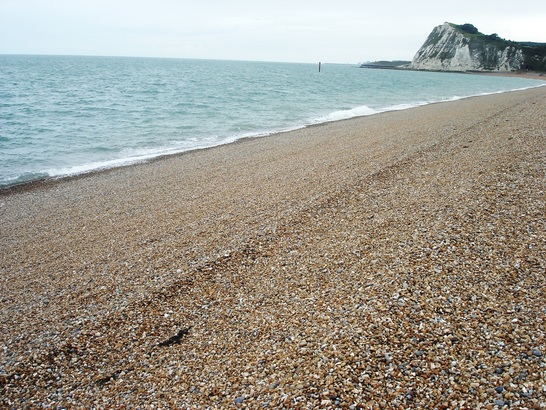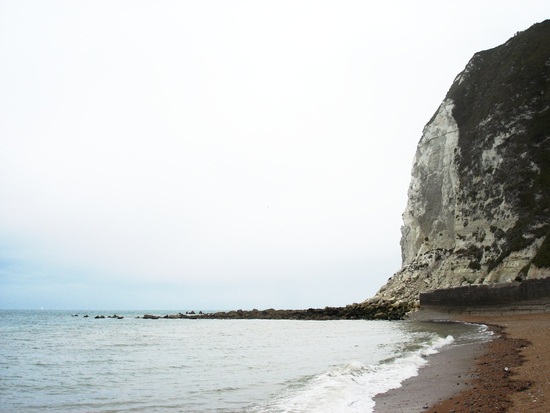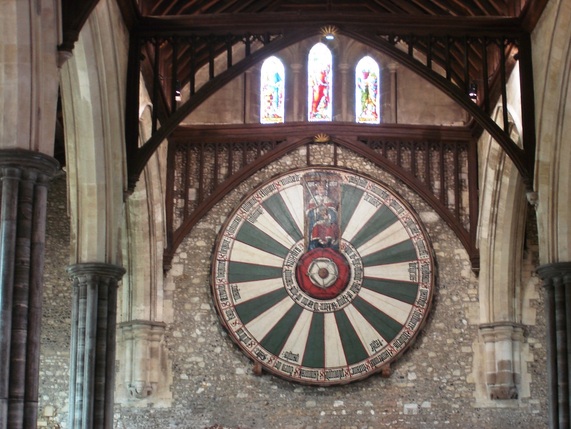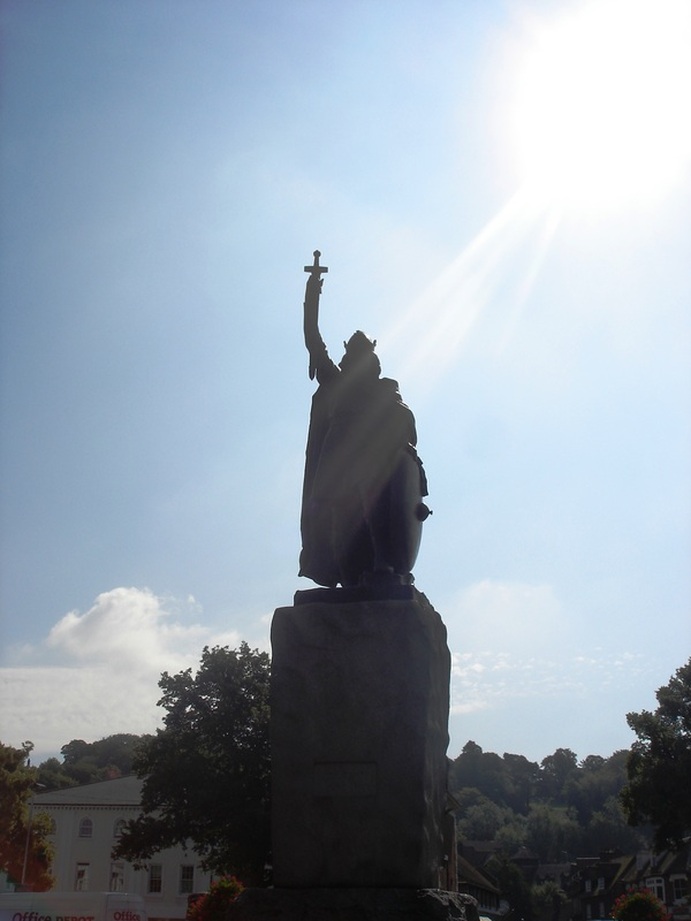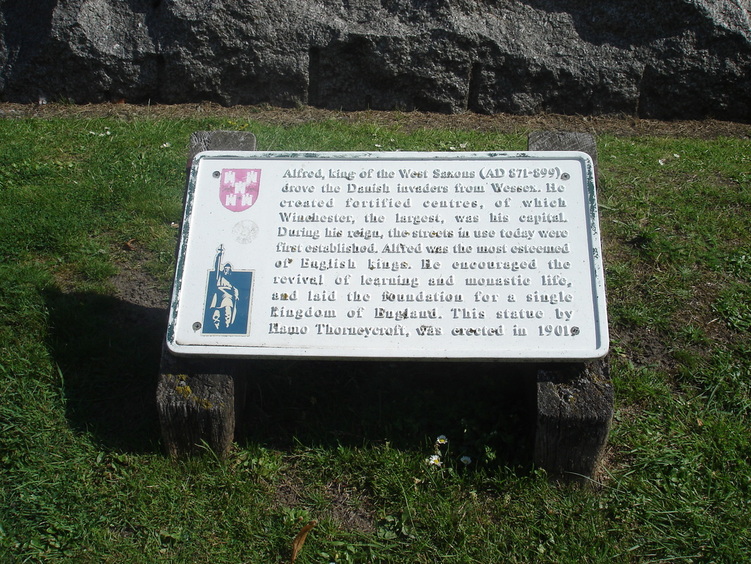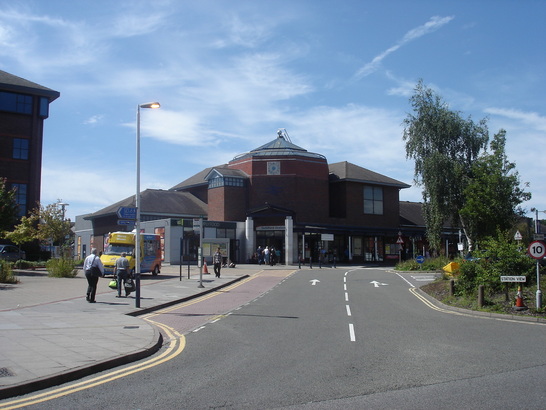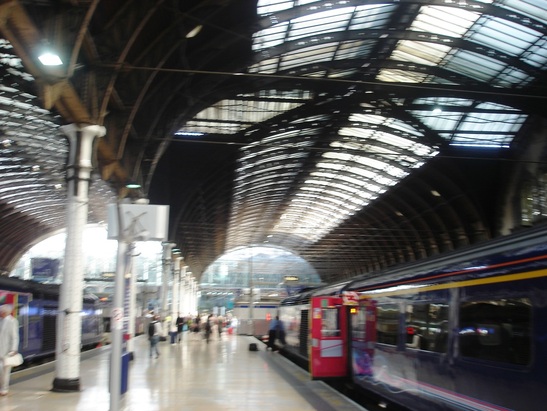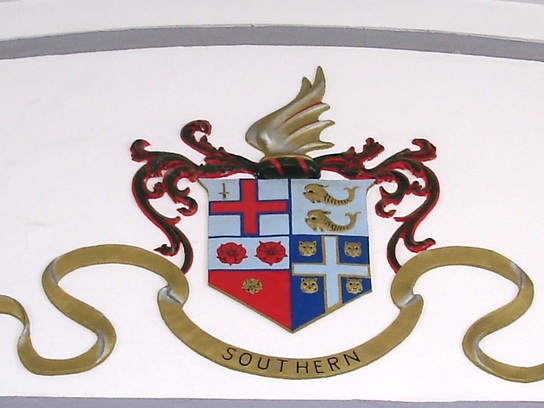Mark Spring
If I could condense the purpose of my work into a sentence, I would say that I teach so that I can help people learn how to "make their own days." Learning how to think, learning how to be a creative reader, and learning how to write can give any person, in any place, at any time, and in any situation, a greater measure of freedom and happiness. I find great joy in reading (and in re-reading many times) my favorite novels and poems, these "momentary stays from chaos" (Hart Crane), these "things sketched on the sidewalk so that the pensive man may see" (Wallace Stevens).
My bachelor's degree is in philosophy. I wrote two thesis papers: one on Heidegger and Conrad, and another on the American pragmatists. I took several courses in psychology, creative writing, literature, and history, too. My first master's degree in is Philosophy of Education. For my thesis I took ideas from my two undergraduate thesis papers and built a curriculum for teaching English based in philosophy of mind and philosophy of language.
I taught high school and community college courses for seven years before moving to North Carolina to complete a Master of Fine Arts degree in English-Creative Writing at NCSU, where I also taught poetry writing to undergraduates. I love NCSU's English department, and I am happy to continue my studies in English Education in the College of Education at NCSU. My dissertation will give me an opportunity to draw together key elements from every phase of my education. I hope to complete my Ph.D. in the summer of 2013 (check with later to see if that date sticks. And wish me luck).
My bachelor's degree is in philosophy. I wrote two thesis papers: one on Heidegger and Conrad, and another on the American pragmatists. I took several courses in psychology, creative writing, literature, and history, too. My first master's degree in is Philosophy of Education. For my thesis I took ideas from my two undergraduate thesis papers and built a curriculum for teaching English based in philosophy of mind and philosophy of language.
I taught high school and community college courses for seven years before moving to North Carolina to complete a Master of Fine Arts degree in English-Creative Writing at NCSU, where I also taught poetry writing to undergraduates. I love NCSU's English department, and I am happy to continue my studies in English Education in the College of Education at NCSU. My dissertation will give me an opportunity to draw together key elements from every phase of my education. I hope to complete my Ph.D. in the summer of 2013 (check with later to see if that date sticks. And wish me luck).
[1]
Thinking about "The King's Invasion"
A screenplay project inspired by Shakespeare's Henry V
In the winter of 2007 I started to plan a trip to the southeastern coast of England.
I had just completed the outline of "The King's Invasion," a screenplay about King Henry V's invasion of France in 1415. While doing research for this project, I learned about St. Augustine's first landing (597 A.D.) in the southeastern county of Kent near an ancient Roman fort established in 43 A.D. St. Augustine's arrival, his eventual settlement in Canterbury, and his establishment of Canterbury Cathedral marked a new era in the history of Christianity in England.
The historical significance of this location and its proximity to the northern shores of France inspired me to set the opening scenes of the film somewhere near St. Augustine's landing. I wanted to begin the story with King Henry V sitting on a shore, facing France, and thinking about his father's advice (2 Henry IV: IV.v) on waging war:
King Henry IV : "...I...had a purpose now / To lead out many to the Holy Land, /
Lest rest and lying still might make them look / Too near
unto my state. Therefore, my Harry, / Be it thy course to
busy giddy minds / With foreign quarrels, that action, hence
borne out, / May waste the memory of the former days....
...How I came by the crown, O God forgive, / And grant
it may with thee in true peace live!"
Prince Henry : "My gracious liege, / You won it, wore it, kept it, gave it me; /
Then plain and right must my possession be, / Which I
with more than a common pain / 'Gainst all the world
will rightfully maintain."
In the opening scene of "The King's Invasion," King Henry V's thoughts also play out in the context of larger questions concerning the role of Christianity in making decisions about war and peace. He thinks about the history of Roman Christian conquest in England as he weighs moral, economic, and political arguments for and against his plans to invade. Advisers with differing views about the merits and risks of launching an invasion approach the King as he meditates on his choices; as they speak to him, one at a time, the advisers cannot determine whether or not he has made a decision. Each adviser leaves with the belief that he has persuaded the King to heed his advice.
Throughout Henry V, Shakespeare uses several characters--especially the Archbishop of Canterbury and the Duke of Burgundy--to explore whether Christianity is primarily a religion of peace and justice or an ideological framework for organizing English society for war (Henry V: I.ii):
Archbishop of Canterbury: "...Go, my dread lord, to your great-grandsire's tomb, /
From whom you claim; invoke his warlike spirit, / And your
great-uncle's, Edward the Black Prince, / Who on the French
ground played a tragedy, / Making defeat on the full power
of France, / Whiles his most mighty father on a hill / Stood
smiling to behold his lion's whelp / Forage in blood of French
nobility....O, let [your loyal subjects] follow, my dear liege, /
With [blood] and sword and fire, to win your right; / In aid whereof
we of the Spiritualty / Will raise your Highness such a mighty sum
As never did the clergy at one time / Bring in to any of your ancestors.
/ ...Therefore to France, my liege!"
Duke of Burgundy (V.ii): "My duty to you both, on equal love. Great Kings of France
and England: That I have labor'd / With all my wits, my pains,
and strong endeavors / To bring your most imperial Majesties /
Unto this royal bar and interview, / Your mightiness on both parts
best can witness. / Since then my office hath so far prevail'd, /
That face to face, and royal eye to eye, / You have congreeted,
let it not disgrace me, / If I demand, before this royal view, /
What rub or what impediment there is, / Why that naked, poor,
and mangled Peace, / Dear nurse of arts, plenties, and joyful
births, / Should not in this best garden of the world, / Our
fertile France, put up her lovely visage? / ...[M]y speech entreats
That I may know the let why gentle Peace / Should not...bless us
with her former qualities."
As I discuss in the essay linked below this introductory note, Henry V strikes several parallels with political and cultural debates that intensified in the United States, in England, across Europe, and around the world in the years leading up to and during the Iraq War. Numerous points of overlap between King Henry V's invasion of France and the American invasion of Iraq present compelling reasons to examine and dramatize this historical event in a new, more historically accurate and complex form that goes beyond Shakespeare's play and into a deep reading of history from both English and French perspectives.
__________
On the final two days of our class, I re-read Henry V and rode trains to Canterbury and then to sites all along the southeastern coast, thinking about the screenplay and searching for a place to open the film. After traveling to Margate, Broadstairs, Ramsgate, Sandwich, and Minster-in-Thanet, I arrived in Dover. A three-tiered cobblestone beach there faces the shores of Calais. An historic English military stronghold, Dover Castle, sits roughly one mile away, higher back atop white cliffs. This beach is called Shakespeare Beach. There is a white cliff at the far end. A hiker who came around from the other side of it, a native of Dover, informed me that this cliff is named Shakespeare Cliff, after scenes in King Lear (III: i, ii, iii):
Earl of Kent (III, i): "...If...you dare to build so far / To make your speed to Dover, you shall find / Some that will thank you, making just report / Of how unnatural and bemaddening sorrow / The King hath cause to plain...."
King Lear (III, ii): "Blow, winds, and crack your cheeks! rage, blow! / You cataracts and hurricanoes, spout / Till you have drench'd our steeples, drown'd the cocks! / You sulph'rous and thought-executing fires, / Vaunt-couriers of oak-cleaving thunderbolts, / Singe my white head!"
I had just completed the outline of "The King's Invasion," a screenplay about King Henry V's invasion of France in 1415. While doing research for this project, I learned about St. Augustine's first landing (597 A.D.) in the southeastern county of Kent near an ancient Roman fort established in 43 A.D. St. Augustine's arrival, his eventual settlement in Canterbury, and his establishment of Canterbury Cathedral marked a new era in the history of Christianity in England.
The historical significance of this location and its proximity to the northern shores of France inspired me to set the opening scenes of the film somewhere near St. Augustine's landing. I wanted to begin the story with King Henry V sitting on a shore, facing France, and thinking about his father's advice (2 Henry IV: IV.v) on waging war:
King Henry IV : "...I...had a purpose now / To lead out many to the Holy Land, /
Lest rest and lying still might make them look / Too near
unto my state. Therefore, my Harry, / Be it thy course to
busy giddy minds / With foreign quarrels, that action, hence
borne out, / May waste the memory of the former days....
...How I came by the crown, O God forgive, / And grant
it may with thee in true peace live!"
Prince Henry : "My gracious liege, / You won it, wore it, kept it, gave it me; /
Then plain and right must my possession be, / Which I
with more than a common pain / 'Gainst all the world
will rightfully maintain."
In the opening scene of "The King's Invasion," King Henry V's thoughts also play out in the context of larger questions concerning the role of Christianity in making decisions about war and peace. He thinks about the history of Roman Christian conquest in England as he weighs moral, economic, and political arguments for and against his plans to invade. Advisers with differing views about the merits and risks of launching an invasion approach the King as he meditates on his choices; as they speak to him, one at a time, the advisers cannot determine whether or not he has made a decision. Each adviser leaves with the belief that he has persuaded the King to heed his advice.
Throughout Henry V, Shakespeare uses several characters--especially the Archbishop of Canterbury and the Duke of Burgundy--to explore whether Christianity is primarily a religion of peace and justice or an ideological framework for organizing English society for war (Henry V: I.ii):
Archbishop of Canterbury: "...Go, my dread lord, to your great-grandsire's tomb, /
From whom you claim; invoke his warlike spirit, / And your
great-uncle's, Edward the Black Prince, / Who on the French
ground played a tragedy, / Making defeat on the full power
of France, / Whiles his most mighty father on a hill / Stood
smiling to behold his lion's whelp / Forage in blood of French
nobility....O, let [your loyal subjects] follow, my dear liege, /
With [blood] and sword and fire, to win your right; / In aid whereof
we of the Spiritualty / Will raise your Highness such a mighty sum
As never did the clergy at one time / Bring in to any of your ancestors.
/ ...Therefore to France, my liege!"
Duke of Burgundy (V.ii): "My duty to you both, on equal love. Great Kings of France
and England: That I have labor'd / With all my wits, my pains,
and strong endeavors / To bring your most imperial Majesties /
Unto this royal bar and interview, / Your mightiness on both parts
best can witness. / Since then my office hath so far prevail'd, /
That face to face, and royal eye to eye, / You have congreeted,
let it not disgrace me, / If I demand, before this royal view, /
What rub or what impediment there is, / Why that naked, poor,
and mangled Peace, / Dear nurse of arts, plenties, and joyful
births, / Should not in this best garden of the world, / Our
fertile France, put up her lovely visage? / ...[M]y speech entreats
That I may know the let why gentle Peace / Should not...bless us
with her former qualities."
As I discuss in the essay linked below this introductory note, Henry V strikes several parallels with political and cultural debates that intensified in the United States, in England, across Europe, and around the world in the years leading up to and during the Iraq War. Numerous points of overlap between King Henry V's invasion of France and the American invasion of Iraq present compelling reasons to examine and dramatize this historical event in a new, more historically accurate and complex form that goes beyond Shakespeare's play and into a deep reading of history from both English and French perspectives.
__________
On the final two days of our class, I re-read Henry V and rode trains to Canterbury and then to sites all along the southeastern coast, thinking about the screenplay and searching for a place to open the film. After traveling to Margate, Broadstairs, Ramsgate, Sandwich, and Minster-in-Thanet, I arrived in Dover. A three-tiered cobblestone beach there faces the shores of Calais. An historic English military stronghold, Dover Castle, sits roughly one mile away, higher back atop white cliffs. This beach is called Shakespeare Beach. There is a white cliff at the far end. A hiker who came around from the other side of it, a native of Dover, informed me that this cliff is named Shakespeare Cliff, after scenes in King Lear (III: i, ii, iii):
Earl of Kent (III, i): "...If...you dare to build so far / To make your speed to Dover, you shall find / Some that will thank you, making just report / Of how unnatural and bemaddening sorrow / The King hath cause to plain...."
King Lear (III, ii): "Blow, winds, and crack your cheeks! rage, blow! / You cataracts and hurricanoes, spout / Till you have drench'd our steeples, drown'd the cocks! / You sulph'rous and thought-executing fires, / Vaunt-couriers of oak-cleaving thunderbolts, / Singe my white head!"
| henry_v_in_film.pdf |
Shakespeare Beach
[2]
Interview with Alireza Behnejad of Tehran, Iran
Alireza (“Ali”) Behnejad is a doctoral student in Engineering at the University of Surrey in Guildford, England. Ali is an architect, an engineer, and a businessman from Tehran, Iran. He owns an architecture firm in Tehran; his wife and daughter still live there as well. Ali visits with his family by flying back and forth between England and Iran at least once per month.
Over the course of three hours, Ali fielded dozens of challenging questions from us (Mark Spring and Sarah Cannon) on a range of topics, including the contemporary state of Iranian politics, the changing roles of women in Iran, the revolutions unfolding throughout the Middle East, and the international ISIS organization, a multidisciplinary group of scholars from around the world devoted to the study of symmetry (one of Ali’s main intellectual interests). He provided photos (see the PDF file below) from an ISIS (International Society for the Interdisciplinary Study of Symmetry[1]) conference in Iran; he emphasized that women now outnumber men in Iranian universities.
Ali struck me as a progressive intellectual. He expressed open-minded views about the roles of women in Iranian society, and he spoke of himself as someone who identifies more with the people of the world than with the governments of the world. Throughout the course of our interview, he made an effort to distinguish between Iranian citizens and Iranian government officials. He spoke with admirable detachment about divisive political issues. Only briefly did a stronger emotion show through when he mentioned nuclear energy and when he spoke about the most recent national election in Iran.
“Iranians are tired of revolution,” he asserted. Of the revolutions in Egypt, Lybia, Tunisia, and Syria, he said: “Look at those countries. Thousands of people have lost their lives in the revolutions.” I asked Ali about the alleged crackdown on opposition parties in Iran after the disputed outcomes of the last national election and wondered whether the Iranian people might find inspiration to rebel. You can hear his answers in the second part of this interview.
Over the course of the night, Ali and Sarah and I established trust and developed a rich conversation on several topics. You can see excerpts of the interview in the clips posted here, including the conversation about Iranian politics. I am still in touch with Ali and hope to keep building our friendship through discussions of poetry and politics.
[1] http://symmetry-us.com/
| interviewwithalirezabehnejad.docx |
Interview: Part 1 (00:09:20)
Interview: Part 2 (00:17:58)
| conferences_pictures.pdf |
[3]
Kings of England, The Round Table, & Wars Past and Present
Our guide at Winchester's Great Hall at Winchester Castle held forth on several interesting topics:
One of Britain's ancient military campaigns has shaped American military strategy in Afghanistan...
The legend of Camelot and the Round Table influenced later kings' conceptions of leadership, as evidenced by the artifacts in the Great Hall in Winchester, England, and by the Hall itself, built eight centuries ago to commemorate King Arthur's legend and to emphasize the role of the English monarch in anchoring English society...
Myths and history blend in ancient stories and in modern films...
This famous artifact on display in Winchester is not the original Round Table--and thank goodness:
this ancient replica brings other things to mind--roulette wheels and dart boards, for example.
Statue of King Alfred, the only English monarch still known by the title "The Great."
He ruled late in the ninth century and succeeded in repelling Viking invasions while helping to improve the quality of education, agriculture, and military training in southern England.
[4]
Public Transportation in England:
Every American Needs to Experience This
Trains and buses provide access to cities large and small throughout England, and the public transportation system is safe, comfortable, and popular. Throughout our two-week visit to southern England, I walked several miles per day and took trains all over the south and southeast. I connected with people riding on the trains and waiting in the stations, and I made new friends while walking on the streets of Ramsgate, Guildford, Dover, and London. My body felt fresher and younger after a two-week rest from driving in my car. I was aware that routinely commuting long distances by car can adversely affect one's physical health and overall well-being; my experiences in England gave me a bold first-hand illustration of the relationship between commuting and personal wellness. I have started walking a lot more in my hometown since I returned to the United States, and I feel a positive difference in my health as a result. I long for a train system in the triangle, however, one that could rival the train system in southern England. We have a good bus system here in the Triangle, but the schedule is much more limited than the train system in England. The trains are also safer, QUIETER, and more comfortable than the buses. I found myself getting work done on the trains and emerging from hour-long rides feeling calm and upbeat. I'd like more Americans to experience a system like this, because they would have a sense of how we could improve our lives and come together as a community if we were to greatly expand our public transportation system.
Bike-Rental Stations: A Business Model for American Cities
The Train Station at Guildford
A View Inside Paddington Station in London, England
Coat of Arms Emblem in Ramsgate Station, Ramsgate, England
[5]
Music in the Streets of Dublin, Ireland
Hammer Dulcimer Songs
A group of musicians in Nashville, Tennessee, featured a hammer dulcimer in songs I saw them playing in the Nashville airport in the mid-1990's. I walked off the plane and saw them there in a high-arching hallway lit by skylights. The sounds of the hammer dulcimer held me there for a long spell. The next time I heard a hammer dulcimer was in the winter of 2008, in my living room in North Carolina, when a friend of mine brought and played a dulcimer that a craftsman had made in Asheville, North Carolina. She was an amateur player, but I was completely enchanted once again by the sounds of this instrument. The six-minute video clip posted here is from my third experience listening to the hammer dulcimer. The third time is the charm. I am now thinking of getting one, learning to play, and sharing the instrument with others in any way I can.
[6]
Poems
"George Eliot"
Here is a poem about English novelist George Eliot. You can read it and listen to it at this Voicethread:
http://voicethread.com/?#u1053663.b2170339.i11575699
Here is a poem about English novelist George Eliot. You can read it and listen to it at this Voicethread:
http://voicethread.com/?#u1053663.b2170339.i11575699
| george_eliot_poem.doc |
"Brother"
Here is a poem from our class on July 9th. You can read it and comment on it at this Voicethread:
